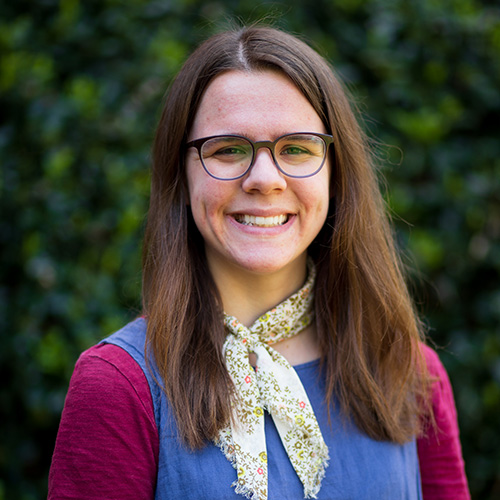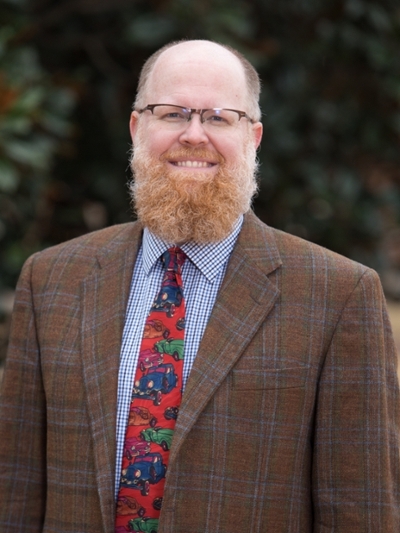
By the time seniors graduate from the human development and family science (HDFS) program in Orlean Beeson School of Education, each student has completed and presented an original research project. However, much of the groundwork is laid before students reach their senior year.
Jonathan Davis, professor of human development and family science, says the department is intentional about preparing students for their research project in all of their preceding courses. Students will practice reading an empirical article in their first course and then their understanding of those empirical articles will develop through each of their courses as research is incorporated into instruction.
 Bronwyn Frost
Bronwyn Frost“All of the professors really see the benefit of research because they know how each research project contributes to the larger picture of how we as professionals graduating with HDFS degrees can better support families in the community,” said Bronwyn Frost ’21. “I think the professors really wanted you to be able to feel confident and support you in your research.”
Since Frost was pursuing a career in higher education in student affairs, she chose a research topic of interest titled “Communication and Strength of Faith: Conversation and Conformity Orientation in Parent-Child Communication.” She studied whether the communication style of a college student’s family during their upbringing impacted their faith commitment in college.
Between 30 to 40 projects are completed each year consisting of non-experimental, survey research. When students begin the research curriculum, which covers three courses in two semesters, they begin by creating an annotated bibliography that can cover any topic as long as it relates to family or human development and family science. Topics have included how the family influences academic achievement, how childhood hospitalization affects the family or how children with disabilities influence family life. Afterward, the bibliography is converted into a literature review and students form a hypothesis which serves as the foundation for the methodology section of their study.
“We point out to the students that by the time you finish your project, you are going to be an expert in that topic, maybe more so than anyone else in this building, including the faculty, because you’ve read a lot of scientific literature about that topic,” said Davis.
After completing their research, each student develops a scientific poster and presents their research findings using the Three Minute Thesis (3MT®) model. The presentation allows students to transition from a focus on the technical aspects of the project like p-values and statistics to a macro view that enables them to explain their research using plain language that anyone can understand.
“I think it’s pretty helpful to them because it’s helping bridge that gap between what most people know and do and what scientists know and do, and so I think that’s been a helpful addition in the last few years,” said Davis.
The Department of Human Development and Family Science, which has had six recipients of the Outstanding Undergraduate Paper Award by the National Council on Family Relations, is among a small group of undergraduate programs doing this level of research. Undergraduate students in the HDFS program are completing the same original research process used by students in many graduate programs.
 Jonathan Davis
Jonathan DavisDavis says that he frequently receives emails from former students expressing how much more prepared they felt for graduate school or their career than many of their peers.
“I hope that by graduating people that are familiar with research, we are helping folks, even those who don’t go to graduate school, be familiar and confident in reading and finding research because the researcher-practitioner gap is a huge problem not just in our field,” said Davis.
Emma Bryant, a student in the fast-track Master of Social Work program, chose to study how the variables of mental health disruptions are related to resilience through her project titled “Disruptions in Family Dynamics and How it Impacts Mental Health and Resilience.”
“I feel prepared to go into grad school and to tackle more research or even continue this research that I started this past year,” said Bryant. “Within human development, or any field of science really, there’s always room to grow and there are always questions that can be asked and so to have a community of people who all have that same interest was super encouraging.”
